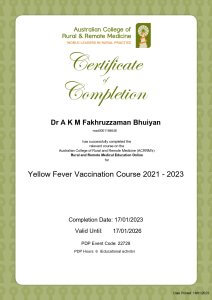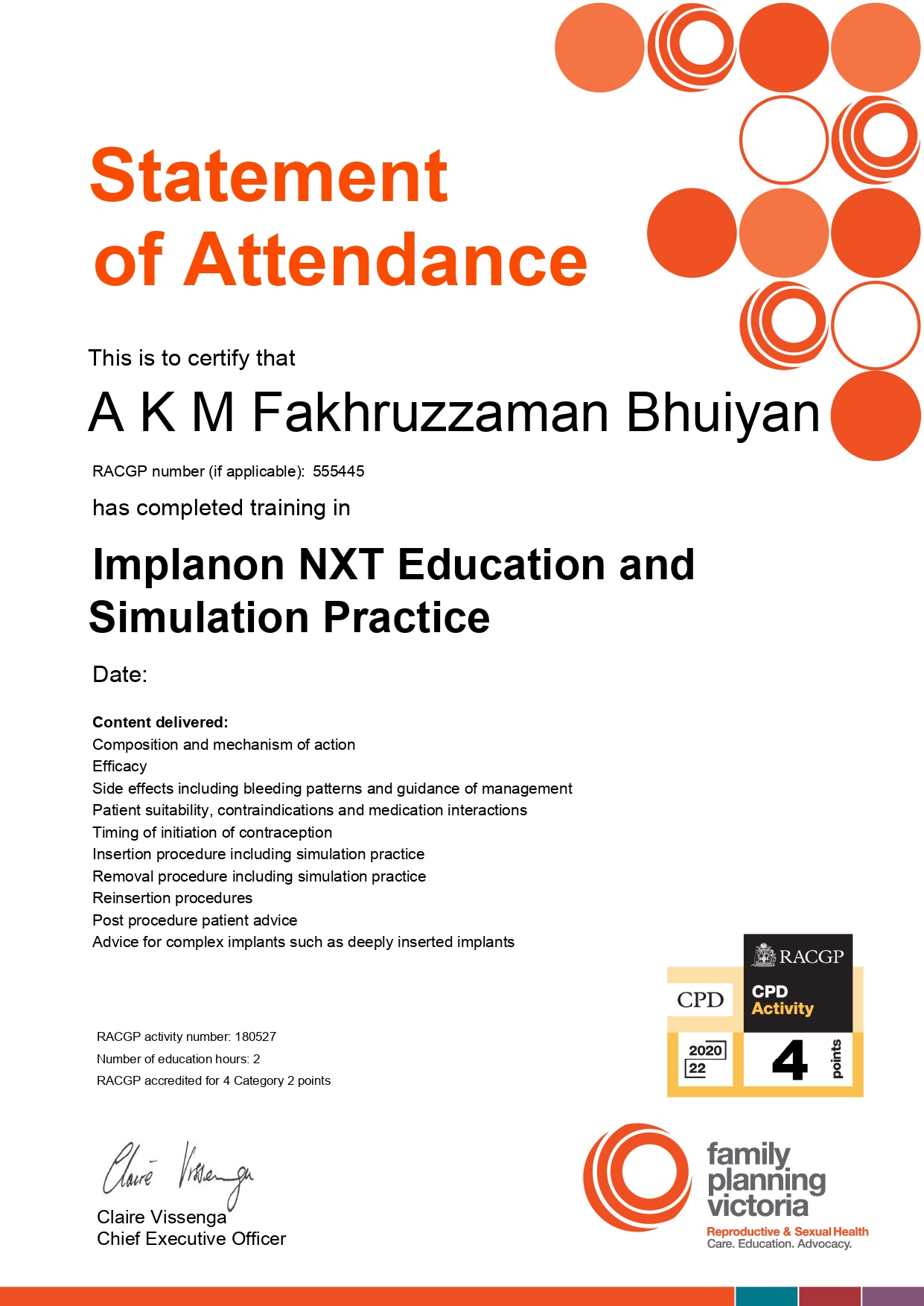It is important for travellers to contact a designated Yellow Fever Vaccination Centre well in advance of their trip to ensure that the vaccine is available.
Some countries require proof that you have received a yellow fever vaccination before allowing you to enter the country. Consult an embassy or consulate of your destination country Australia for up-to-date information on its entry and exit requirements before you travel abroad.
Other countries may require you to have been vaccinated for yellow fever if you have passed through an area where yellow fever may occur
Proof of vaccination must be documented on an International Certificate of Vaccination or Prophylaxis. You must carry the original certificate with you.
In Australia, the vaccination is only given at designated yellow fever vaccination centres.
What is yellow fever?
Yellow fever is a viral disease that is transmitted by mosquitoes. Yellow fever can lead to serious illness and even death. It is called ‘yellow fever’ because in serious cases, the skin turns yellow in colour. This is known as ‘jaundice’. Yellow fever is a Listed Human Disease under Australia’s
Who should get vaccination
People aged 1 year or over must have an International certificate of vaccination or prophylaxis if they have stayed overnight or longer in a declared yellow fever–infected country within 6 days before arriving in (or returning to) Australia.
Healthcare professionals provide this certificate at the time a person is vaccinated against yellow fever. The certificate is valid for the duration of the life of the person and begins 10 days after vaccination.
Yellow fever vaccine must be given by an approved yellow fever vaccination centre. Centres can charge a range of fees for a consultation and the yellow fever vaccine.
How To Prevent Yellow Fever
The best way to prevent yellow fever is through vaccination. But, you should take extra precautions if you are in an area with the virus.
- Cover-up with a loose-fitting long sleeved shirt and long pants when outside
- Apply mosquito repellent to exposed skin
- Remove potential mosquito breeding sites from around the home and screen windows and doors
- Take extra precautions when travelling in areas with a higher risk of mosquito-borne diseases.
In addition to the general protection measures above, overseas travellers should also:
- Take special care during peak mosquito biting hours. The mosquitoes that transmit diseases such as yellow fever, dengue, chikungunya and Zika will bite all through the day
- Stay and sleep in screened or air-conditioned rooms
- Use a bed net if the area where you are sleeping is exposed to the outdoors. Nets are most effective when they are treated with a pyrethroid insecticide, such as permethrin. Pre-treated bed nets can be purchased before travelling, or nets can be treated after purchase
- Avoid known areas of high mosquito-borne disease transmission or outbreaks.
Yellow fever vaccine available in Australia
Dose and route of administration
The dose of yellow fever vaccine in children and adults is 0.5 mL given by either intramuscular or subcutaneous injection.
Only Yellow Fever Vaccination Centres can provide yellow fever vaccination. These centres must be approved by the relevant state or territory health authorities. See International travel requirements.
Co-administration with other vaccines
Children and adults can receive yellow fever vaccine at any time before or after, or with, inactivated vaccines and oral live vaccines relevant to travel (such as cholera and typhoid).
Children and adults can receive yellow fever vaccine and most other parenteral live vaccines either:
- On the same day, or
- At least 4 weeks apart
If a person receives yellow fever vaccine at the same time as other live vaccines, this does not affect their immune response to any of the vaccine antigens. This includes co-administration with:
- Japanese encephalitisvaccine7
- BCG(bacille Calmette–Guérin) vaccine
One Brazilian study suggested that co-administration of yellow fever and MMR vaccines on the same day resulted in lower seroconversion rates to the vaccine antigens than when the vaccines were given at least 4 weeks apart.8 More studies are needed to determine the clinical significance of this finding.
People who should not receive yellow fever vaccination
The vaccine is not suitable for everyone and should not be given to people who:
- Are under nine months of age
- Have had a severe allergic reaction (anaphylaxis) to an earlier dose of the vaccine
- Have had severe allergic reaction (anaphylaxis) to any component of the vaccine
- Have allergies to eggs
- Have a weakened immune systemdue to illness or medical treatment
- Have a history of a thymic disorder – including myasthenia gravis, thymoma, thymectomy, DiGeorge syndrome, or cases of damage to the thymus from chemotherapy, radiotherapyor as a result of complications after transplantation.
Side effects of the vaccine against yellow fever
Immunisations against yellow fever are generally effective and safe, although all medications can have unwanted side effects.
Side effects from the vaccine are uncommon and usually mild, but for up to five to 10 days after vaccination may include:
- Low-grade temperature (fever)
- Mild headache
- Muscle aches.
Many vaccine injections may result in soreness, redness, itching, swelling or a burning sensation at the injection site for one to two days. Paracetamol might be required to ease the discomfort.
There are a number of treatment options that can reduce the side effects of the vaccine, including:
- Giving extra fluids to drink and not overdressing if there is a fever
- Although routine use of paracetamol after vaccination is not recommended, if fever is present, paracetamol can be given
Australia’s list of yellow fever risk countries and areas
Australia’s list of yellow fever risk countries and areas is guided by the WHO list of yellow fever endemic countries and also takes into account recent international surveillance data.
Africa
- Angola
- Benin
- Burkina Faso
- Burundi
- Cameroon
- Central African Republic
- Chad
- Congo, D R C
- Congo, Republic of the
- Cote d’Ivoire (Ivory Coast)
- Equatorial Guinea
- Ethiopia
- Gabon
- Gambia
- Ghana
- Guinea
- Guinea-Bissau
- Kenya
- Liberia
- Mali
- Mauritania
- Niger
- Nigeria
- Senegal
- Sierra Leone
- South Sudan
- Sudan
- Togo
- Uganda
South America & Central America
- Argentina – Misiones and Corrientes Provinces
- Bolivia
- Brazil
- Colombia
- Ecuador excluding Galapagos Islands
- French Guiana
- Guyana
- Panama
- Paraguay
- Peru
- Suriname
- Trinidad
- Venezuela
Where do I go for further information?
If you require any information about travel vaccinations, please contact your general practitioner or travel doctor.
Please contact the Department of Health on (02) 6289 8638 during business hours (AEST) for information about Australian requirements for yellow fever vaccination.




